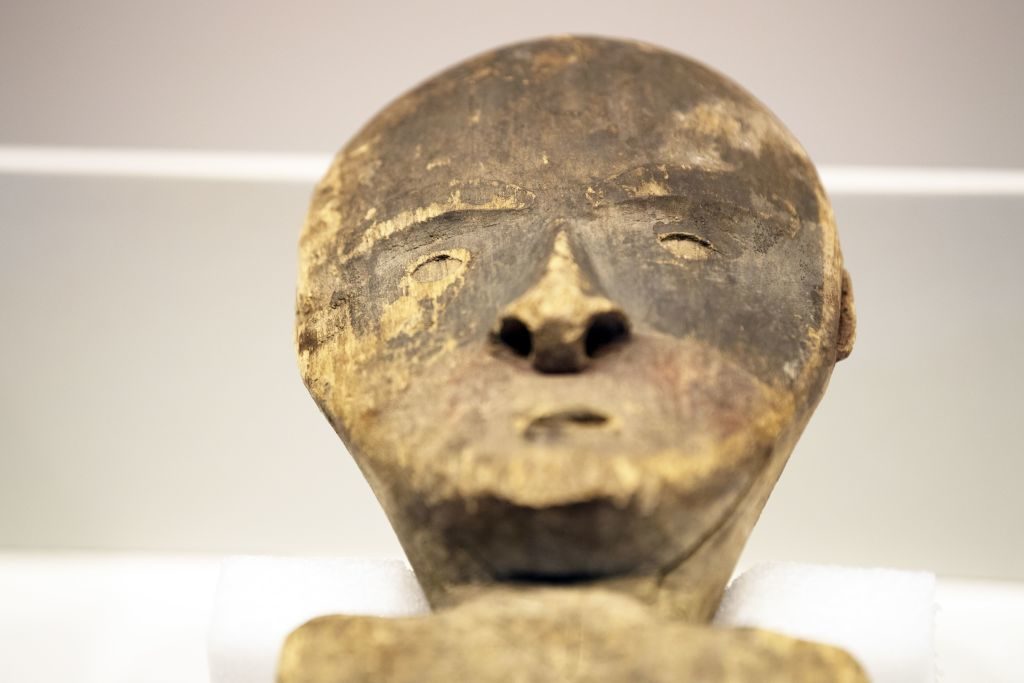Politics
In an Effort to Correct Its Cultural ‘Blind Spot,’ Germany Releases a Code of Conduct for Colonial-Era Artifacts
The sweeping 130-page guidelines outline methodologies for provenance research and possibilities for restitution.

The sweeping 130-page guidelines outline methodologies for provenance research and possibilities for restitution.

Germany’s culture minister Monika Grütters has released a 130-page code of conduct for museums outlining ways to identify and confront colonial-era artifacts in their collections. The publication seeks to usher in a sustained restitution effort across German cultural institutions. But some advocates say it doesn’t go far enough.
The German Association of Museums published the new outline, “Guide to Dealing With Collection Goods From Colonial Contexts,” on Monday. It marks yet another step forward in the government’s ongoing attempt to build and reformat its policy for dealing with its colonial past. On Wednesday, the foundation behind Berlin’s state museums, the Prussian Cultural Heritage Foundation, held an official ceremony to return nine artifacts to Indigenous Alaskan communities, which were culled from a burial ground in the late 19th century.
Grütters has described provenance research as of “the highest political priority.” The new guidelines, which will soon be available in English and French, detail colonial terminology and lay out best practices in provenance research. They also include a 15-page-long list of former and current colonies around the world.
The code of conduct, first reported by The Art Newspaper, also outlines several alternatives to restitution, acknowledging that the return of objects like the Alaskan grave goods is not, in fact, a regular occurrence. Alternative solutions, according to the document, include long-term loans and “joint custody” agreements with affected nations.
“The colonial era has been a blind spot in our culture of remembrance for too long,” Grütters said in a statement. “With these guidelines, the German Association of Museums is presenting a comprehensive contribution to a discussion that doesn’t end here but is only just starting.”
Since taking office for a second term, Grütters has made confronting Germany’s colonial history a centerpiece of her platform. Last month, she announced that the German Lost Art Foundation—originally established to investigate Nazi-looted art in public collections—would dedicate some of its funding and research to colonial-era objects.
Her effort coincides with a similar push by French president Emmanuel Macron, who has been vocal about his support of the full restitution of African colonial-era artifacts.
Public outcry over Germany’s forthcoming Humboldt Forum, which will hold its Asian and ethnographic collections in the reconstructed Prussian palace in Berlin, has also played no small role in instigating the German government to become more proactive about its colonial restitution policies.
Still, some critics say the new guidelines represent more talk than concerted action. They note that the code is non-binding and largely only governs objects that violated the “legal and ethical standards” in former colonies at the time.
“The guidelines are an attempt to preserve vested colonial interests that is doomed to failure,” Tahir Della of the initiative for black people in Germany (ISD) told the Guardian. “Every day, members of the communities of African origin in Africa and here in the diaspora have a better picture of which of their looted treasures lie in the cellars of European museums, and they won’t rest until they have got back what belongs to them.”
Eckart Köhne, the president of the German Association of Museums, has said that he hopes the code of conduct will generate global discussion. The association is also soliciting input from other countries, particularly those in Africa, and plans to publish a revised version of the guidelines in a year and a half.